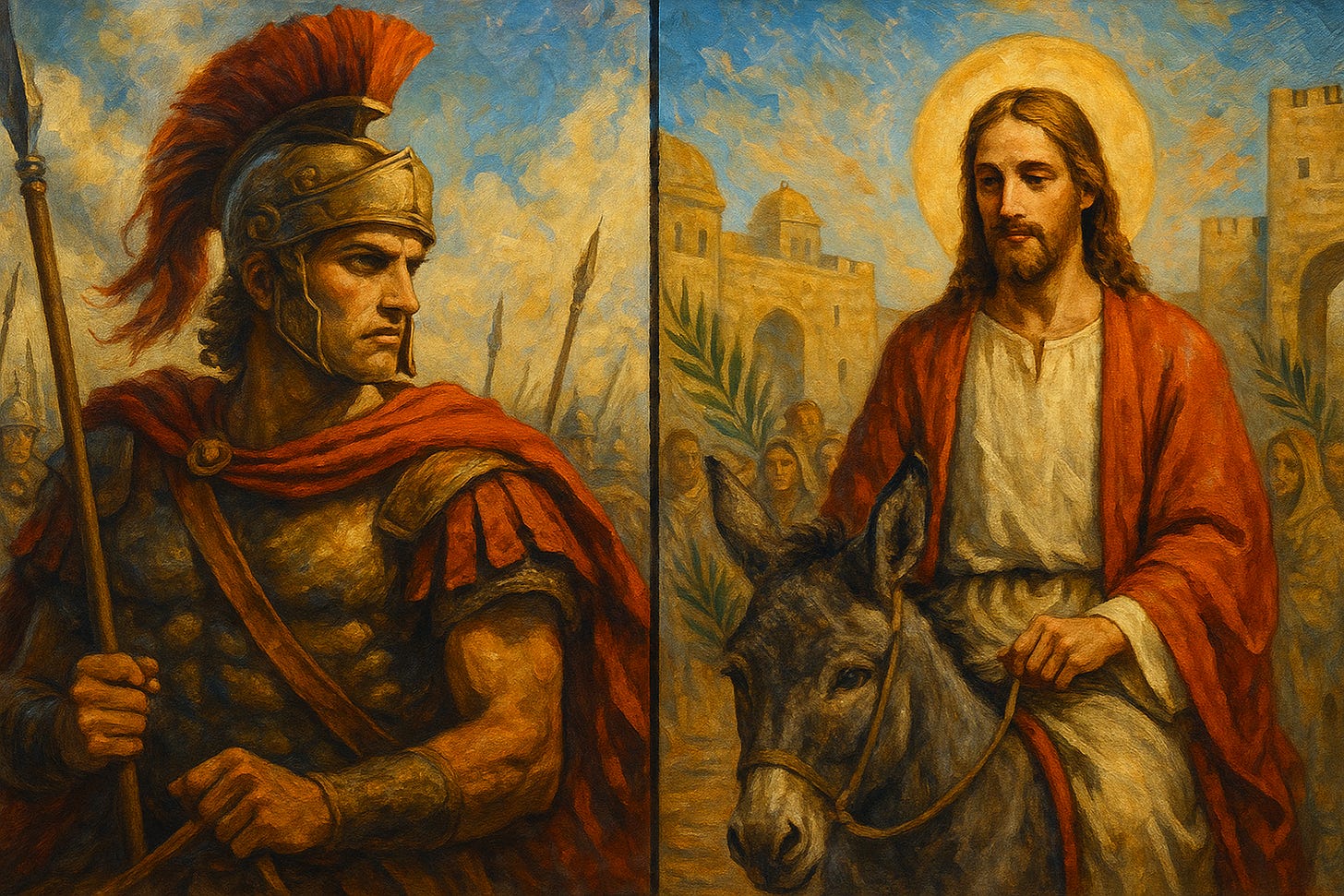Jesus and Alexander: Two different kinds of kings
Charles Ross Weede's poem contrasts a worldly conqueror with the eternal king.
While preparing a Bible study on John 12:12–36 — the passage we now associate with Palm Sunday — I came across a poem contrasting the lives of Alexander the Great and Jesus.
My study is titled “A Different Kind of King,” and it focuses on Jesus’ entry into Jerusalem as Israel’s promised messiah.
The Jewish people longed for a warrior king who would liberate them from Roman oppression. But Jesus was not the kind of king they expected.
Instead of leading a revolt, he pointed to the cross — not a throne — as the path to his glory and our salvation. His victory would be far greater than any military conquest.
Alexander the Great, who lived about 350 years before Jesus and was tutored by Aristotle, was the king of Macedonia and built one of the largest empires in history by the age of 30.
A brilliant military strategist and charismatic leader, he was even worshiped as a god during his lifetime.
Jesus, of course, is God.
Both men died suddenly around the age of 33 — Alexander, possibly from fever or poisoning; Jesus, crucified on a Roman cross.
In the mid-20th century, Christian poet Charles Ross Weede (who died in 1968) wrote “Jesus and Alexander” — a poem that contrasts Alexander’s fleeting earthly power with Christ’s eternal victory.
Here’s the poem:
Jesus and Alexander
Jesus and Alexander died at thirty-three,
One died in Babylon and one on Calvary.
One gained all for self, and one Himself He gave.
One conquered every throne, the other every grave.
When died the Greek, forever fell his throne of swords,
But Jesus died to live forever Lord of lords.
Jesus and Alexander died at thirty-three.
The Greek made all men slaves, the Jew made all men free.
One built a throne on blood, the other built on love.
The one was born of earth, the other from above.
One won all this earth to lose all earth and Heaven.
The other gave up all that all to Him be given.
The Greek forever died, the Jew forever lives.
He loses all who gets and wins all things who gives.
The poem contrasts worldly glory with the eternal kingdom of Christ, calling the reader to consider what kind of legacy truly lasts.
Key themes include:
Fame vs. eternity: Alexander’s legacy is temporary, while Jesus’ is eternal.
Selfish ambition vs. selfless love: Alexander amassed power, while Jesus gave himself for others.
Love as victory: Alexander’s empire was built on bloodshed, while Jesus’ kingdom was built on love (John 15:13).
The final couplet delivers a lesson that echoes Jesus’ teaching in Luke 9:24, which says, “For whoever would save his life will lose it, but whoever loses his life for my sake will save it.”
Alexander paved the way for the spread of the gospel
Alexander’s conquests changed the course of history and laid the groundwork for the Roman Empire.
But those conquests also helped prepare the way for the spread of the gospel centuries later. Here’s how:
Greek Language
Alexander spread the Greek language throughout his empire. By Paul’s time, Koine Greek was the common language of much of the Roman world. This made it possible for the New Testament to be written and understood widely.
Cultural Unity
Greek culture created a shared context across diverse regions. This made communication and philosophical engagement easier for Paul and other apostles.
Cities and Infrastructure
Alexander founded many cities (including Alexandria) that later became centers of Jewish and Christian thought. Urban life made it easier to plant and grow churches.
Religious Openness
Greek influence encouraged philosophical inquiry and spiritual curiosity. People were often open to new religious ideas, including the gospel.
So while Alexander sought glory for himself, God used his conquests to prepare the way for a different kind of King.
The very language and culture Alexander spread would later carry the gospel of Jesus — the King who gave his life to set captives free.
As Paul wrote in Romans 8:28, “We know that for those who love God all things work together for good.”
Even the ambitions of an earthly conqueror were woven into God’s plan to exalt the one who conquered death.




